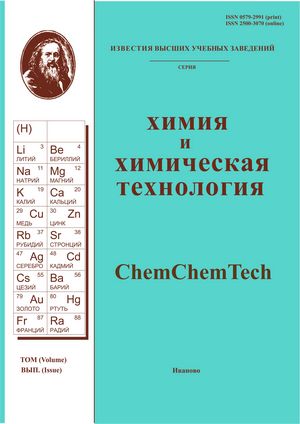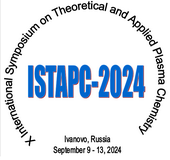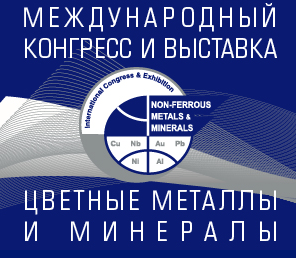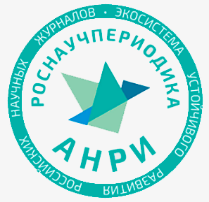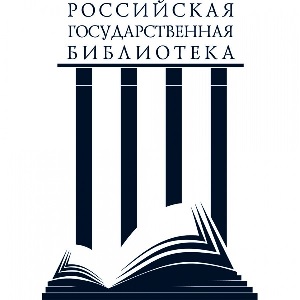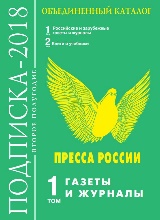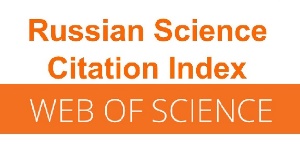ДЕТОКСИКАЦИЯ ОТРАБОТАННЫХ СИНТЕТИЧЕСКИХ МОТОРНЫХ МАСЕЛ БИОКОМПОЗИЦИЯМИ НА ОСНОВЕ ГУМИНОВЫХ КИСЛОТ В ВОДЕ
Аннотация
Среди современных технологий ремедиации маслозагрязненных сточных вод наиболее перспективными являются технологии, основанные на биологических методах очистки, а именно на процессе самоочищения с использованием различных консорциумов микроорганизмов, отличающихся повышенной способностью к биодеструкции углеводородов нефти и нефтепродуктов. Данная статья посвящена оценке детоксицирующей способности новых биокомпозиций на основе микроорганизмов-нефтедеструкторов в сочетании с природными диспергаторами – гуминовыми кислотами по отношению к отработанному синтетическому моторному маслу в воде. Исследованы биокомпозиции на основе гуминовых кислот, выделенных из торфов Тульской области: тростниковый низинный и черноольховый низинный, и микроорганизмов-деструкторов нефти рода Rhodococcus, продуцирующих биологические поверхностно-активные вещества и способные окислять за счет наличия ферментативных систем широкий спектр нефтяных углеводородов. Детоксицирующая способность биокомпозиций определена методом биотестирования путем оценки токсического эффекта на тест-объект ряска малая. Снижение токсического эффекта по коэффициенту детоксикации достигнуто более чем на 50%. Акцентировано внимание на преимуществах биотестирования по сравнению с аналитическими методами, которые заключаются в простоте использования, экспрессности в определении результатов, экономичности и самое главное – возможности судить о том, насколько опасно конкретное количество ксенобиотика для жизнедеятельности организмов. Проведенные эксперименты доказывают, что разработанная биокомпозиция влияет на дисперсное состояние отработанного синтетического моторного масла в воде, а также способствует деградации его компонентов. Полученные биокомпозиции могут быть использованы в качестве биопрепаратов комплексного действия при биотехнологической ремедиации водных сред по технологии in situ.
Для цитирования:
Гречищева Н.Ю., Дмитриева Е.Д., Стародубцева К.А., Заворотный В.Л. Детоксикация отработанных синтетических моторных масел биокомпозициями на основе гуминовых кислот в воде. Изв. вузов. Химия и хим. технология. 2024. Т. 67. Вып. 2. С. 119-125. DOI: 10.6060/ivkkt.20246702.6895.
Литература
Morozov N.V., Ganiev I.M. Techology of biological treatment of industrial waste water from used lubricating (motor) oils. Printsipy Ekologii. 2021. N 2. P. 67–78 (in Russian). DOI: 10.15393/j1.art.2021.11802.
Belyakov A.Yu., Pleshakova E.V. Screening of microorganisms-destructors components of drilling fluids. Izv. Saratov. univ. Nov. Seriya. Ser.: Khimiya. Biologiya. Ekologiya. 2013. V. 13. N 4. P. 37–42 (in Russian). DOI: 10.18500/ 1816-9775-2013-13-4-37-42.
Berdichevskaya M.V. Features of the physiology of rhodococci of the developed oil deposits. Mikrobiologiya. 1989. V. 58. N 1. P. 60–65 (in Russian).
Nechaeva I.A., Luong T.M., Satina V.E. The influence of physiological characteristics of bacteria of the genus Rhodococcus on the degradation of n-hexadecane. Izv. TulGU. Estestv. Nauki. 2016. N 1. P. 90–98 (in Russian).
Zampolli J., Collina E., Lasagni M., Gennaro P. Biodegradation of variable-chain-lengthn-alkanesin Rhodococcus opacus R7 and the involvement of analkane hydroxyl asesystem in the metabolism. Appl. Environ. Microbiol. 2014. V. 4. N 73. P. 1–9. DOI: 10.1186/s13568-014-0073-4.
Bryanskaya A.V., Uvarova Yu.E., Slynko N.M., Demidov E.A. Theoretical and practical aspects of the problem of biological oxidation of hydrocarbons by microorganisms. Vavilov. Zhurn. Genetiki Selektsii. 2014. V. 18. N 4/2. P. 999-1012 (in Russian).
Yankevich M.I., Khadeeva V.V., Murygina V.P. Bioremediation of soils: yesterday, today, tomorrow. Biosfera. 2014. V. 7. N 2. P. 199-208. DOI: 10.24855/biosfera.v7i2.59.
Shvetsov V.N., Morozova K.M., Semenov M.Yu., Pushnikov M.Yu., Stepanov A.S., Nikiforov S.E. Oil-containing wastewater treatment by biomembrane methods. Vodosnabzhenie Sanitarnaya Tekhnika. 2008. N 3. P. 39–42 (in Russian).
Grechishcheva N.Y., Korolev A.M., Zavorotny V.L., Starodubtseva K.A., Ali M.S. Stabilization of oil-in-water emulsions with highly dispersed mineral particles: biodegradation and toxic effect on aquatic organisms. ChemChemTech [Izv. Vyssh. Uchebn. Zaved. Khim. Khim. Tekhnol.]. 2023. V. 66. N 2. P. 23-35. DOI: 10.6060/ivkkt.20236602.6729.
Dmitrieva E.D., Grinevich V.I., Gertsen M.M. Degradation of oil and petroleum products by biocompositions based on humic acids of peats and oil degrading microorganisms. Ros. Khim. Zhurn. (Zhurn. Ross. Khim. Ob-va). 2022. V. LXVI. N 1. P. 42-56 (in Russian).
Gertsen M.M., Dmitrieva E.D. Binding capacity of humic substances of peats in the relation to petroleum products in the presence of microorganisms of the genus Rhodococcus in aqueous media. Teor. Prikl. Ekologiya. 2021. N 2. P. 142-148 (in Russian). DOI: 10.25750/1995-4301-2021-2-142-148.
Luong T.M. Effect of low temperature on hexadecane bio-degradation by oil-degrading bacteria Rhodoccocus SP. X5 capable of producing glycolipid biosurfactants. Biotekhnologiya. 2017. V. 33. N 6. P. 49-56 (in Russian). DOI: 10.21519/0234-2758-2017-33-6-49-56.
Yang F., Tang C., Antonietti M. Natural and artificial humic substances to manage minerals, ions, water, and soil microorganisms. Chem. Soc. Rev. 2021. 50(10). P. 6221-6239. DOI: 10.1039/D0CS01363C.
Grechishcheva N.Yu., Fakhretdinova D.R., Murygina V.P., Gaydamaka S.N. Evaluation of the effectiveness of using humic substances as washing agents of oilcontaminated soils. Zashchita Okruzh. Sredy Neftegas. Komplekse. 2019. N 6 (291). P. 22-26 (in Russian).
Lyong T.M., Nechaeva I.A., Ponamoreva O.N. Study of the emulsifying properties of bacteria-destructors of petroleum hydrocarbons. Aktual. Biotekhnol. 2014. N 3(10). P. 108-109 (in Russian).
Bojkova O.I., Volkova E.M. Chemical and biological properties of peat in the Tula region. Izv. Tul. Gos. Univ. Estestv. Nauki. 2013. N 3, P. 253-264 (in Russian).
Pyrchenkova I.A. Search for active psychrotrophic microbial oil degraders and their characterization. Priklad. Biokhim. Mikrobiol. 2006. V. 42. N 3. P. 298–305 (in Russian). DOI: 10.1134/S0003683806030070.
Gertsen М.М., Dmitrieva E.D. Ability of humic acids of peats to stabilize oil and petroleum product emulsions. Vestn. TvGU. – Ser.: Khimiya. 2020. N 3(41). P. 103-111 (in Russian). DOI: 10.26456/vtchem2020.3.11.
Kurapov A.A., Umerbaeva R.I., Gridneva V.V. Microor-ganisms in processes of the destruction of oil in reservoirs. Yug Rossii: Ekologiya, Razvitie. 2010. V. 5. N 4. P. 86-88 (in Russian). DOI: 10.18470/1992-1098-2010-4-86-88.
Perminova I.V., Hatfield K., Hertkorn N. Use of humic substances to remediate polluted environments: from theory to practice. Dordrecht: Springer. 2005. 506 p. DOI: 10.1007/1-4020-3252-8.
Zavorotny V.L., Zaporozhskaya A.A., Starodubtseva K.A., Kapustina A.V. Ecological toxicity assessment of continuous phase of oil-based drilling fluids by methods of calculation and biotesting. Zaschita Okr. Sredy Neftegaz. Komplekse. 2022. N 5(308). P. 11-16 (in Russian). DOI: 10.33285/2411-7013-2022-5(308)-11-16.
Pflugmacher S., Pietsch C., Rieger W., Steinberg C.E.W. Dissolved natural organic matter (NOM) impacts photosynthetic oxygen production and electron transport in coontail Ceratophyllum demersum. Sci. Total Environ. 2006. V. 357. N 1–3. P. 169–175. DOI: 10.1016/j.scitotenv.2005.03.021.
Melekhova O.P., Sarapul'ceva E.I. Biological control of the environment: bioindication and biotesting. M.: Izd. tsentr Akademiya. 2010. 288 p. (in Russian).

